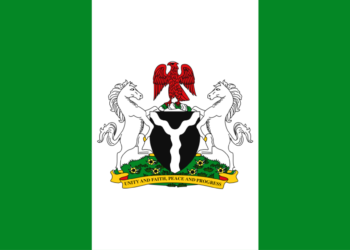The Socio-Economic Rights and Accountability Project (SERAP) has issued a stern call for transparency and accountability from the Nigerian National Petroleum Company Limited (NNPCL), demanding answers regarding the whereabouts of N500 billion in oil revenue that remains unaccounted for.
The funds, which were expected to be remitted to the Federation Account between October and December 2024, have sparked widespread concern following a recent disclosure by the World Bank.
In a Freedom of Information (FOI) request dated May 17, 2025, signed by SERAP’s Deputy Director, Kolawole Oluwadare, the organization urged Mr. Bayo Bashir Ojulari, NNPCL’s Group Chief Executive Officer, to provide a detailed explanation of the missing funds.
According to the World Bank, NNPCL generated N1.1 trillion from crude oil sales and other income in 2024, but only N600 billion was remitted to the Federation Account, leaving a staggering N500 billion unaccounted for. This shortfall has raised alarm bells, with SERAP describing it as a “grave violation” of public trust and the Nigerian Constitution.
SERAP’s letter emphasizes the constitutional and international obligations of public institutions to uphold transparency and combat corruption. Citing Section 15(5) of the Nigerian Constitution 1999 (as amended), which mandates public institutions to abolish corrupt practices.
SERAP called on Mr. Ojulari to identify those suspected of involvement in the financial discrepancy, surcharge them for the full amount, and hand them over to anti-corruption agencies, namely the Economic and Financial Crimes Commission (EFCC) and the Independent Corrupt Practices and Other Related Offences Commission (ICPC), for investigation and prosecution.
The missing N500 billion reflects a broader failure of accountability within the NNPCL, the letter stated, adding that the organization’s actions contravene the principles of transparency enshrined in the Freedom of Information Act, Section 39 of the Nigerian Constitution, Article 9 of the African Charter on Human and Peoples’ Rights, and Article 19 of the International Covenant on Civil and Political Rights.
SERAP underscored that Nigerians have a fundamental right to know why the NNPCL failed to remit the subsidy removal savings, which were intended to bolster the national budget and support critical public services.
The International Monetary Fund (IMF) has also weighed in, recently urging the Nigerian government to ensure that savings from the removal of petrol subsidies are fully transferred to the Federation Account.
The IMF’s call aligns with the World Bank’s findings, which highlighted that NNPCL’s failure to remit the full revenue has exacerbated Nigeria’s fiscal challenges, contributing to a larger-than-anticipated deficit in the 2025 budget.
SERAP warned that without the recovery and remittance of the missing N500 billion, Nigeria’s already dire economic situation could worsen, further limiting access to essential public goods and services such as healthcare, education, and infrastructure.
The country’s oil wealth ought to be used solely for the benefit of the Nigerian people, and for the sake of present and future generations, the organization stated, emphasizing the public interest in resolving this issue.
The advocacy group has given NNPCL a seven-day ultimatum to address the allegations and take concrete steps to recover the funds. “If we have not heard from you by then, SERAP shall consider appropriate legal actions to compel the NNPCL to comply with our requests in the public interest,” the letter concluded.
The controversy comes amid growing scrutiny of NNPCL’s financial management. Earlier reports, including a 2021 audit by the Auditor-General of the Federation, alleged that NNPCL failed to account for N825 billion and $2.5 billion earmarked for refinery rehabilitation, further fueling concerns about systemic mismanagement.
The recent World Bank revelation adds to the mounting pressure on NNPCL to address longstanding issues of opacity in the oil sector.
WHAT YOU SHOULD KNOW
As Nigerians await a response from NNPCL, the call for accountability resonates strongly, with many hoping that decisive action from the EFCC, ICPC, and other stakeholders will shed light on the missing funds.
ALSO READ TOP STORIES FROM VERILY NEWS


















